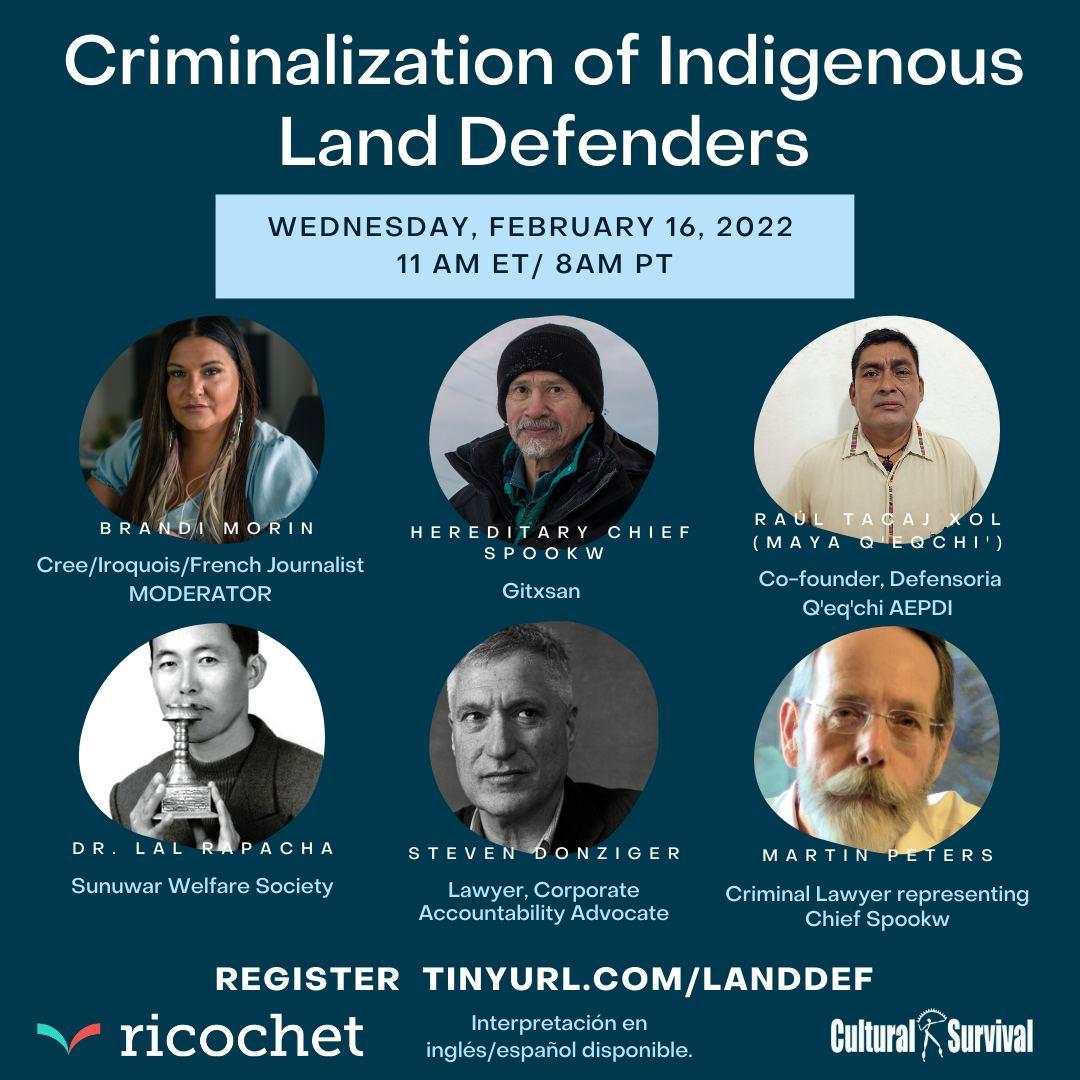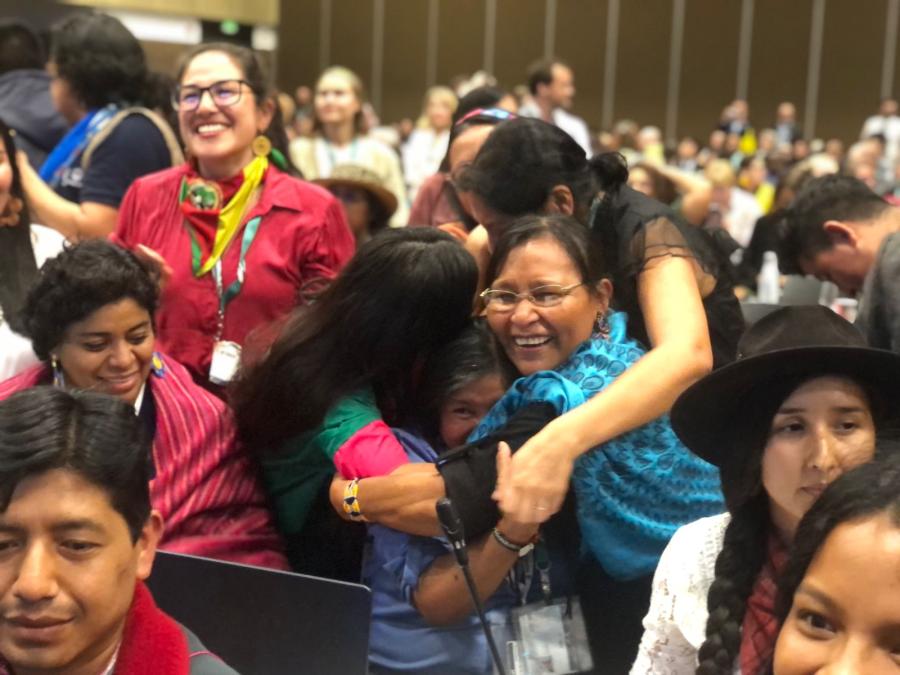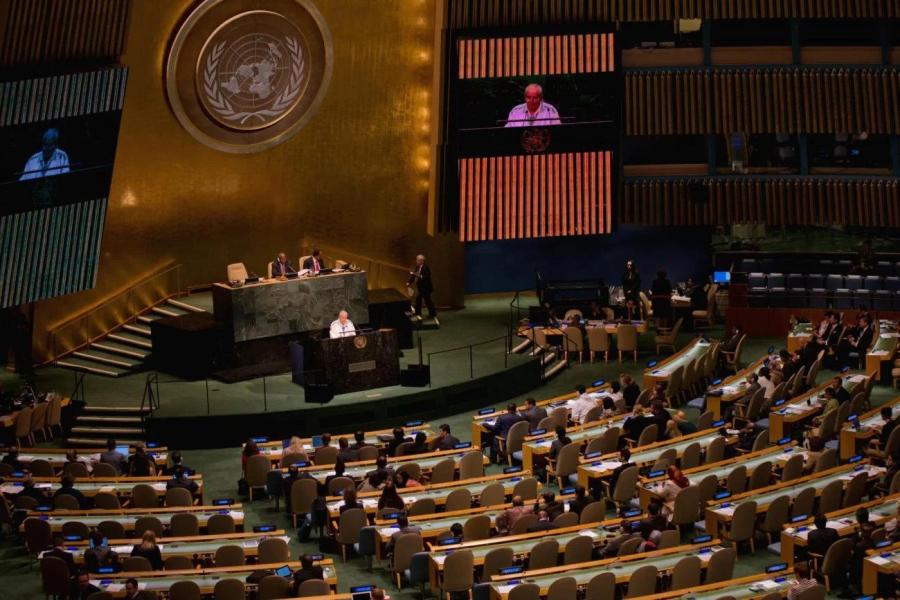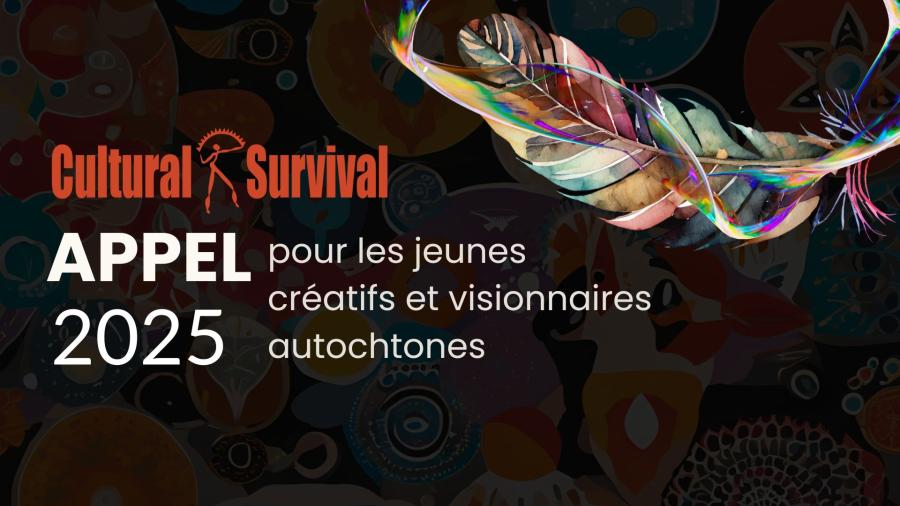
By Rebecca Kirkpatrick (CS Intern)
The criminalization of Indigenous land defenders is nothing new. Indigenous Peoples have been threatened, intimidated, and imprisoned for defending their ancestral lands and their sovereignty since colonization began, and to this day, they continue to face criminalization for fighting for their rights. To learn more about what Indigenous land defenders are facing on the ground, Cultural Survival and Ricochet Media hosted a webinar on the criminalization of Indigenous land defenders on February 16, 2022. The webinar was moderated by Brandi Morin (Cree/Iroquois/French), an award-winning journalist reporting on human rights issues from an Indigenous perspective. The panel of speakers included: Hereditary Chief Spookw (Gitxsan); Raúl Tacaj Xol (Maya Q’eqchi’), Co-founder, Defensoria Q'eq'chi AEPDI; Dr. Lal Rapacha (Sunuwar), Advisor to the Sunuwar Welfare Society; Steven Donziger, lawyer and corporate accountability advocate) and Martin Peters, criminal lawyer representing Chief Spookw and other land defenders of the Gitxsan Nation.
Indigenous Peoples in British Columbia, Canada, have faced years of threats, arrests, and legal battles in an attempt to deter them from protecting their land and their people. But Hereditary Chief Spookw (Gitxsan) made it clear that they will not give up: “[Canadian and provincial governments] have been in this long, slow theft of our lands. Everything they’ve done throughout their existence has been to steal our land… If we don’t seek to impose our laws and assert our ownership of our lands, then it makes it easier for the oppressors and the colonizers to move in and occupy our lands. If we don’t act, then they will never leave.” Chief Spookw himself was arrested in February 2020 for participating in a peaceful railway blockade on their own territory in support of Wet’suwet’en hereditary chiefs who oppose the Coastal GasLink pipeline project. Chief Spookw was later released but is still facing a legal battle in court two years after his arrest. The Gitxsan people are challenging a railroad in their territory that has been there for 120 years without anyone offering compensation of any kind, and the Wet’suwet’en people are peacefully protesting a pipeline that would cut through a significant portion of their territory. “The bizarre thing is,” stated Martin Peters, the Vancouver lawyer representing Chief Spookw, “that the BC Supreme Court has so far really not effectively applied what the Supreme Court of Canada has said and what our Court of Appeal has said, which establishes that Aboriginal interests at least need to be dealt with when injunctions are sought, [and that] did not occur in either of these cases.”
Steven Donziger, a non-Indigenous lawyer, led the legal team that won a $9.5 billion judgment against Chevron on behalf of Indigenous Peoples and rural farmers in Ecuador. Chevron retaliated, orchestrating a civil lawsuit and private criminal prosecution that resulted in Donziger’s imprisonment and home confinement for nearly 1000 days, which is unprecedented. The maximum sentence in the United States for a misdemeanor such as the one with which Donziger was charged is 180 days. “There are individuals and companies that are causing [serious harm], and they need to be held accountable as part of a broader movement to block this general trend toward taking, really stealing, the resources on lands that are held by native peoples,” said Donziger. “The effort to prosecute Chief Spookw—and possibly the others who participated in that blockade—is part of a larger and, I would say, very worrisome playbook that has been invented by the fossil fuel industry to silence people who have the courage, as Chief Spookw has shown he has, to criticize and get in the way of activities that not only run roughshod over indigenous land rights and resource rights but also really threaten to destroy our planet… We need to think big and understand that the battle that Peters and the Chief are engaged in, in British Columbia has ramifications for the entire world.”
In Guatemala, the situation is much the same. Raúl Tacaj Xol spoke of the importance of community radio stations and the government raids and criminalization of community radio workers. In September 2019, the Guatemalan government declared a state of siege in an attempt to put a stop to community radio transmissions. As a result, Tacaj Xol’s community went three months without community radio, a service on which they depend for information transmitted in their mother tongue. “We are still discriminated against and persecuted as Indigenous Peoples by the State of Guatemala,” Tacaj Xol said, “for defending our rights and informing the community about what is happening.” Recently, community radio stations in Guatemala celebrated a historic victory when the Inter-American Court of Human Rights declared the Republic of Guatemala “internationally responsible for the violation of the rights to freedom of expression, equality before the law and participation in cultural life” of Indigenous Peoples. But the fight to protect Indigenous rights in Guatemala is far from over. Extractive projects such as the Fenix Nickel Mine have brought only devastation and violence to local communities and their land. “We continue to fight,” said Tacaj Xol. “We continue to come together, despite the corruption that exists in our country which makes it difficult to obtain justice.”
Local communities near the Likhu River in Nepal face similar issues of destruction and pollution of their ancestral lands as a result of hydroelectric projects in the area. “Due to this damage,” stated Dr. Lal Rapacha, “We, Indigenous people, have a lot of damage and loss there and aquatic life is damaged. Honey bees are totally gone. Cemeteries where we honor our ancestors have been damaged and lost and environmental harmony is lost due to pollution.” This is after just three projects operating on the river. Nine additional private projects are planned for the area as well. The Free, Prior and Informed Consent of local communities was not considered or respected before the start of these projects, and any community members that seek compensation for damages incurred are subjected to abuse. Any compensation that is dispensed is not equally or fairly distributed as promised in the company’s report. “They are going to destroy each and every corner of this planet and exploit Mother Earth,” Dr. Rapacha said, “only to fulfill their greed and desires unnecessarily and we need to unite.”
Webinars such as these provide valuable insight into the fight for Indigenous rights all over the world and show those who are working to protect their communities that they are not alone in their struggles. “I encourage everybody to educate themselves about what’s going on and to really wake up and get involved and stand by the people that are affected by these atrocities, by the criminalization of human beings,” said moderator Brandi Morin, “just for protecting their very survival, their very right to live and sustain themselves off the territories [from] which they come.”



